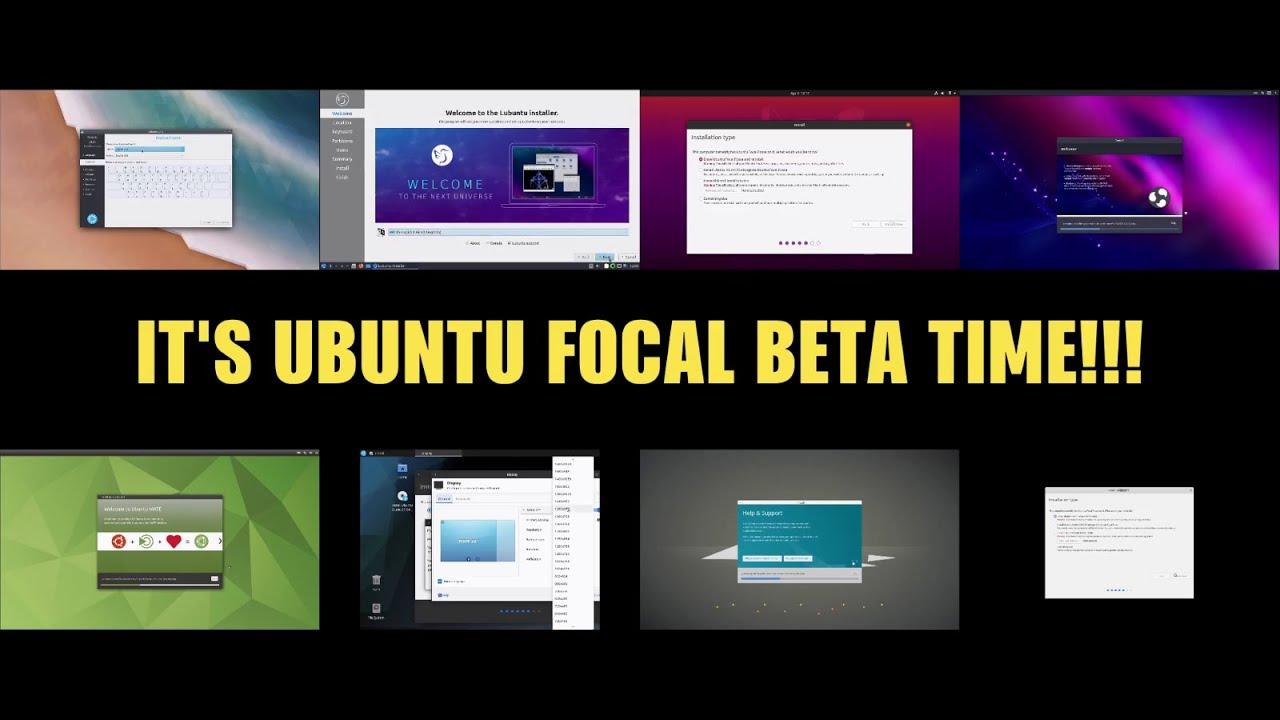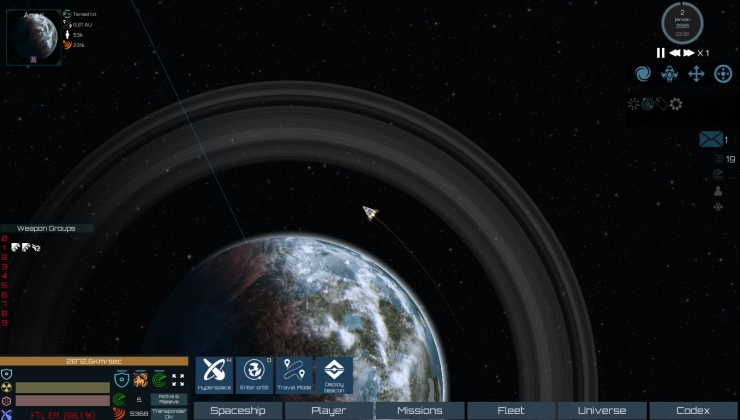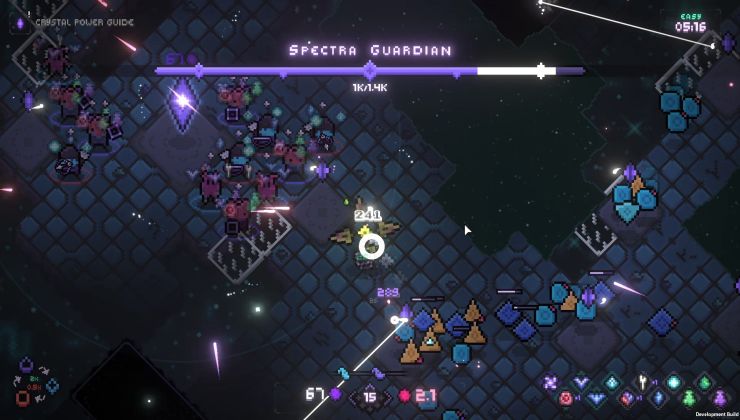Ah Ubuntu, it's like a warm cuddly blanket or a favourite jumper. There's others in your wardrobe but nothing is quite like the comfy and safe feel of it. A major new version is approaching with Ubuntu 20.04 which is a "Long Term Support" release.
Ubuntu 20.04 and all the flavours like Ubuntu MATE, Kubuntu, Budgie and so on have all hit the Beta stage so they're ready for some wider testing and reporting. It's also now Ubuntu Testing Week which runs until April 8, which all the effort now focused on ISO testing, bug reporting, and of course fixing bugs.
Have a quick listen to Canonical staffer Alan Pope talking briefly about it:

Direct Link
Some of the big features landing in Ubuntu 20.04 (and other versions):
- A theme refresh (with a light/dark switcher).
- GNOME 3.36 / MATE Desktop 1.24 / Plasma 5.18
- Mesa 20.0 open source graphics.
- Firefox 74.0.
- ZFS storage upgrades
- Thunderbird 68.6.0.
- LibreOffice 6.4.
- Snap Store replaces the Ubuntu Store.
- And the usual assortment of toolchain updates including glibc 2.31, OpenJDK 11, rustc 1.41, GCC 9.3, Python 3.8.2, ruby 2.7.0, php 7.4, perl 5.30, golang 1.13 and plenty more upgrades.
One of the huge changes for NVIDIA users are the inclusion of drivers on the ISO downloads. This means you can select to install them together with the system, to get a fully ready to go install of Ubuntu. Additionally, Canonical will now be providing NVIDIA driver updates in the repository removing the need for a messy PPA setup. For Linux gamers, it's a big win.
If you want more information on how to get involved in testing, take a look over on this forum post. You can also find the official Beta release announcement here.
The full release of Ubuntu 20.04 is scheduled for April 23 with main support lasting for at least 5 years.
Regardless I will be giving it a go on release, although I am tempted to try and give Budgie a go as my daily use DE.
So I'll stick with my Debian :)
... and pushing technologies that no one else supported, so they didn't get that much support, as Canonical is not that big...
I don't know how you're basing your conclusions as to them not getting much support and Canonical not being big?
https://www.zdnet.com/article/ubuntu-linux-continues-to-rule-the-cloud/
Those are just two links which just refute what you are saying. There are many more links!
https://w3techs.com/technologies/details/os-linux
Here's an AWS stats tracker website tracking 1.2 million+ EC2 instances.
Ubuntu is the clear leader and most popular choice!
https://thecloudmarket.com/stats
Last edited by DanglingPointer on 4 Apr 2020 at 12:19 am UTC
Given we're twenty days away from the final release should we not be looking at release candidates rather than entering beta?
The release candidate comes on [16 April](https://wiki.ubuntu.com/FocalFossa/ReleaseSchedule), so one week before release.
The schedule is
Testing week: 9 January 2020
Feature Freeze: 27 February 2020
Testing week: 5 March 2020
User Interface Freeze: 19 March 2020
Ubuntu 20.04 Beta: 2 April 2020
Kernel Freeze: 9 April 2020
Release Candidate: 16 April 2020
Final Release: 23 April 2020
Last edited by CatKiller on 4 Apr 2020 at 4:04 am UTC
Install base != company size.... and pushing technologies that no one else supported, so they didn't get that much support, as Canonical is not that big...
I don't know how you're basing your conclusions as to them not getting much support and Canonical not being big?
https://www.zdnet.com/article/ubuntu-linux-continues-to-rule-the-cloud/
Those are just two links which just refute what you are saying. There are many more links!
https://w3techs.com/technologies/details/os-linux
Here's an AWS stats tracker website tracking 1.2 million+ EC2 instances.
Ubuntu is the clear leader and most popular choice!
https://thecloudmarket.com/stats
Yeah, they have a lot working on and riding on Openstack their cloud stuff. What they don't have is a lot of dedicated developers to work on their desktop system. And that's what we're talking about here, right?
if you boot via live cd, it will be using the generic nvidia drivers or the same version that you install?Although the closed Nvidia driver is now included on the install media (live CD), the generic (open source) driver will be used by default. So for a Live, nothing will change from before.
Install base != company size.
Yeah, they have a lot working on and riding on Openstack their cloud stuff. What they don't have is a lot of dedicated developers to work on their desktop system. And that's what we're talking about here, right?
Not many dedicated developers for desktop compared to who? IBM-Redhat? Suse? System76? gLinux?
If I'm not mistaken, Canonical employed desktop-developer numbers are only second to IBM-Redhat employeed numbers, with Suse 3rd.
One click install sandboxed snaps are a breeze for new users of Linux to start with. No more tinkering with unsafe PPA's (which often deprecate) and stuff.
Btw: there's now an official snap for ScummVM too! <3
https://www.scummvm.org/news/20200331/
Oh my, I just can't wait for it :)
Comparing the number of devs in individual companies isn't necessarily a good metric either. Ubuntu has historically tried to push a lot of their own things (Mir, Unity, Snap) and in those cases the development and maintenance burden falls mainly on their developers as opposed to collaborators in existing projects or collaborators from multiple projects working on a shared solution. Basically, Canonical devs get spread pretty thin working on multiple home-grown solutions. The more interesting thing to look at is the amount of redundant work that could be avoided by collaborating with existing solutions rather than doing everything yourself.Install base != company size.
Yeah, they have a lot working on and riding on Openstack their cloud stuff. What they don't have is a lot of dedicated developers to work on their desktop system. And that's what we're talking about here, right?
Not many dedicated developers for desktop compared to who? IBM-Redhat? Suse? System76? gLinux?
If I'm not mistaken, Canonical employed desktop-developer numbers are only second to IBM-Redhat employeed numbers, with Suse 3rd.
However, Ubuntu has gotten better about this. Unity is dead and buried and Mir became a Wayland compositor and is relatively irrelevant at the moment. As for Snap and Flatpak, I personally don't see an issue with the duplication there, since I don't think either project is super complicated and in critical need of developer resources.
Wait, what? They switched back to Gnome because they don't have the man power to work on Unity, which is just a gnome hack. Majority of Gnome developers work for Redhat. Most of Ubuntu comea straight from Debian.Install base != company size.
Yeah, they have a lot working on and riding on Openstack their cloud stuff. What they don't have is a lot of dedicated developers to work on their desktop system. And that's what we're talking about here, right?
Not many dedicated developers for desktop compared to who? IBM-Redhat? Suse? System76? gLinux?
If I'm not mistaken, Canonical employed desktop-developer numbers are only second to IBM-Redhat employeed numbers, with Suse 3rd.
Notice I say 'work for Redhat' vs 'develop desktop for Redhat' pretty sure Redhat is still sort of 'meh' toward the desktop, though they do have plenty of people that work on it, and work on Fedora. I just wish Fedora knew the word stable, as in just patch the versions that are there... it seems to pull a new kernel in once every three days.
Anyhow, any of the directions I see Canonical / Ubuntu going in makes me want to stay away for my personal use. Unfortunately for work purposes I will eventually have to deal with it, I am sure.
Drop 32 bit libs anyone? Drop deb packaging? That is where they would like to be.
I do find it funny that snap is geared more toward commercial software than flatpak is. Which enabled someone to upload a 2048 game with an embedded bitcoin miner.Comparing the number of devs in individual companies isn't necessarily a good metric either. Ubuntu has historically tried to push a lot of their own things (Mir, Unity, Snap) and in those cases the development and maintenance burden falls mainly on their developers as opposed to collaborators in existing projects or collaborators from multiple projects working on a shared solution. Basically, Canonical devs get spread pretty thin working on multiple home-grown solutions. The more interesting thing to look at is the amount of redundant work that could be avoided by collaborating with existing solutions rather than doing everything yourself.Install base != company size.
Yeah, they have a lot working on and riding on Openstack their cloud stuff. What they don't have is a lot of dedicated developers to work on their desktop system. And that's what we're talking about here, right?
Not many dedicated developers for desktop compared to who? IBM-Redhat? Suse? System76? gLinux?
If I'm not mistaken, Canonical employed desktop-developer numbers are only second to IBM-Redhat employeed numbers, with Suse 3rd.
However, Ubuntu has gotten better about this. Unity is dead and buried and Mir became a Wayland compositor and is relatively irrelevant at the moment. As for Snap and Flatpak, I personally don't see an issue with the duplication there, since I don't think either project is super complicated and in critical need of developer resources.
I do find it funny that snap is geared more toward commercial software than flatpak is. Which enabled someone to upload a 2048 game with an embedded bitcoin miner.Is there honestly that big of a difference? Basically any software source with little to no curation will eventually get garbage on it. This has happened on AUR as well and I bet someone could sneak a Bitcoin miner on the Flathub as well.
To me Flatpak and Snap don't seem that different. They both aim to solve more or less the same problems, provide more or less the same mechanisms for solving those problems and to me they both seem annoying to use and I'm not fully convinced they actually solve a real problem.
The difference is indeed the curation. Flatpak seems to be much better at it (mostly supporting open source applications), AUR of course is going to have garbage in it. It almost the very definition of "it has a script that pulls in the latest.. plus whatever patches we want to add". Arch themselves warn not to use it or use it sparingly. AUR's purpose is much like the PPAs, to package things not officially done by the distribution.I do find it funny that snap is geared more toward commercial software than flatpak is. Which enabled someone to upload a 2048 game with an embedded bitcoin miner.Is there honestly that big of a difference? Basically any software source with little to no curation will eventually get garbage on it. This has happened on AUR as well and I bet someone could sneak a Bitcoin miner on the Flathub as well.
To me Flatpak and Snap don't seem that different. They both aim to solve more or less the same problems, provide more or less the same mechanisms for solving those problems and to me they both seem annoying to use and I'm not fully convinced they actually solve a real problem.
Snap, Flatpak, etc all have their own share of issues. My point was that Canonical wanted their own so started Snap, instead of working with everyone else and supporting flatpak.
I like how this guy puts it: https://www.youtube.com/watch?v=zPzzcnVh__I
I really dislike the idea of snap/flatpak, I find it the opposite of the KISS principle, they're bloated and complicated, and maybe the answer to a question not asked, at least not in the desktop.For sure. I had to remove all flatpak installs from a VM I had because it ate up too much space in root.
I like how this guy puts it: https://www.youtube.com/watch?v=zPzzcnVh__I
The move away from .deb / apt for Ubuntu is the dumbest idea I have heard.
At that point they may as well stop being based on Debian and just go their own way, which would lose a lot of their developers.
Last night I was trying to find how many actual developers Canonical pays, and happened upon their glassdoir review page. Apparently there are a lot of people who hate their CEO and thinks he sucks.
My point was that Canonical wanted their own so started Snap, instead of working with everyone else and supporting flatpak.
You know snaps came first, right? The failed internal Ubuntu project was Ubuntu Phone. Unity, Mir and snaps were all created for that.
anyone knows an unsnapped version of chromium that can be downloaded from a ppa??
I use the [chromium-dev PPA](https://launchpad.net/~saiarcot895/+archive/ubuntu/chromium-dev) anyway, since it has the accelerated video decoding patches added. There's a similarly-patched PPA for chromium-beta.










 How to set, change and reset your SteamOS / Steam Deck desktop sudo password
How to set, change and reset your SteamOS / Steam Deck desktop sudo password How to set up Decky Loader on Steam Deck / SteamOS for easy plugins
How to set up Decky Loader on Steam Deck / SteamOS for easy plugins
See more from me